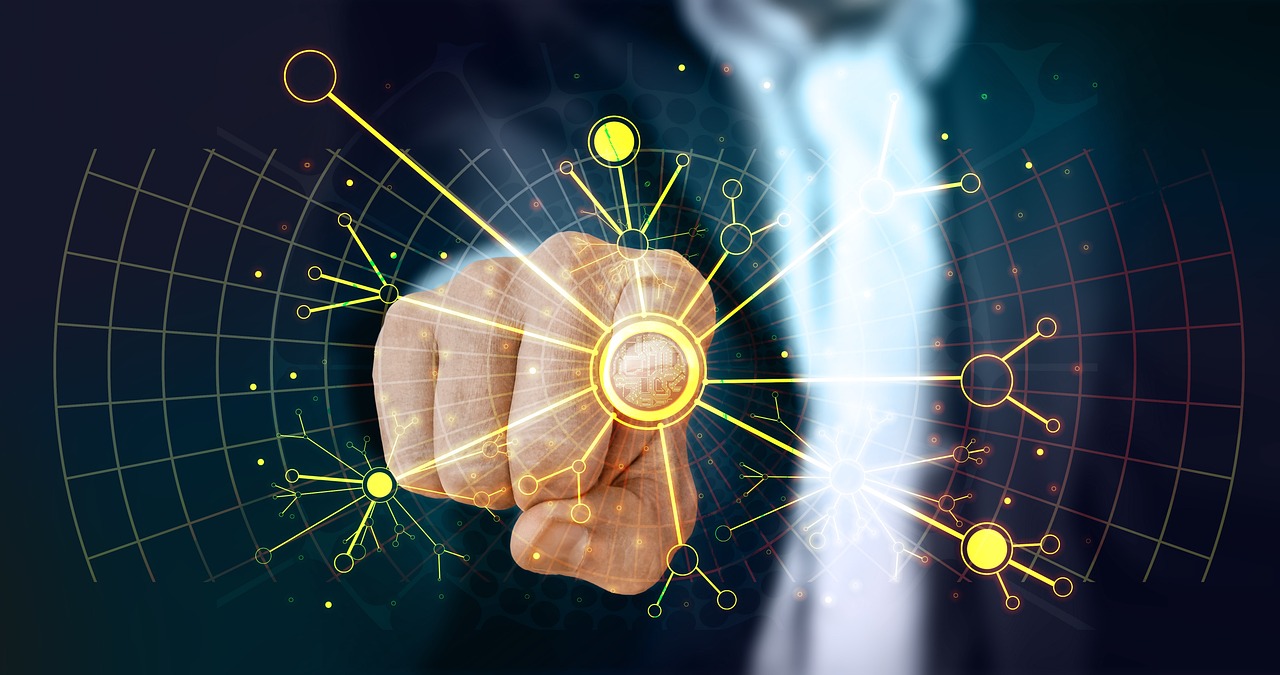Human-aware AI helps accelerate scientific discoveries, new research shows

In a groundbreaking study published in Nature Human Behaviour, researchers delve into the untapped potential of artificial intelligence (AI) in revolutionizing scientific discoveries. The study not only highlights AI's ability to predict new breakthroughs but also explores its capacity to generate innovative hypotheses that lie beyond the reach of human inference. By bridging the gap between human intellect and machine intelligence, these findings pave the way for scientific advancements that transcend the limits of contemporary knowledge.
Co-author James A. Evans, the esteemed Max Palevsky Professor in the Department of Sociology and director of the Knowledge Lab, emphasizes the transformative power of incorporating AI with human expertise. "By integrating AI with human awareness, we can not only enhance the accuracy of predictions but also leapfrog ahead, propelling scientific progress at an unprecedented pace," Evans asserts. Furthermore, he highlights the significance of AI in identifying blind spots and uncovering possibilities that may not be within humans' grasp for decades or even centuries. This complementary intelligence empowers scientists by augmenting their capabilities and expanding the frontiers of scientific exploration.
While AI models trained on existing scientific findings have been successful in developing valuable materials and targeted therapies, they often overlook the collaborative landscape of human scientific endeavors. The researchers of this study sought to rectify this limitation by integrating human expertise explicitly into AI programs. By taking into account historical patterns of competition and collaboration among scientists, they aimed to uncover untapped potential by venturing into unexplored territories.
The team devised a simulation to test this hypothesis, employing random walks across diverse research literature. Starting with a specific property, such as solar energy, the AI program would navigate through a web of related papers, authors, and materials. Through millions of these simulated journeys, the model exhibited a remarkable 400% improvement in predicting future discoveries compared to approaches solely focused on research content. Particularly in cases where relevant literature was scarce, the AI model showcased its ability to predict with over 40% accuracy the scientists who would likely make these groundbreaking breakthroughs. By recognizing the intricate interplay between individuals' experience and relationships, the program identified key players who could bridge the gap between specific properties and materials.
Evans aptly describes this AI model as a "digital double" of the scientific system—an invaluable tool for simulating and experimenting with various possibilities. It not only sheds light on scientists' tendencies to stick to familiar methods, properties, and collaborators but also exposes the limitations of our current scientific system. Graduate education, for instance, is shown to prioritize job market suitability rather than optimizing the discovery of new, technologically relevant advancements. To foster true innovation, each student must become an experiment, traversing uncharted gaps in the landscape of expertise.
In the second phase of the study, the researchers pushed the boundaries of AI even further by tasking the model with generating predictions that were scientifically plausible but least likely to be discovered by humans. Dubbed "alien" or complementary inferences, these predictions possess three distinctive features. Firstly, they are seldom discovered by humans. Secondly, even if they are eventually uncovered, it would take years for scientific systems to reorganize themselves to recognize their significance. Lastly, these alien inferences consistently outperform human inferences, owing to the human tendency to exhaust existing theories before venturing into uncharted territories. By circumventing the webs of human scientific activity, these models open doors to entirely novel realms of exploration.
In conclusion, this groundbreaking study highlights the transformative potential of integrating AI with human expertise to accelerate scientific discoveries. By harnessing the collective intelligence of both humans and machines, scientists can transcend the limitations of their current knowledge and venture into unexplored territories. The implications of this research are profound, offering a glimpse into a future where scientific progress knows no bounds. As AI continues to evolve, it will undoubtedly become an invaluable tool in propelling humanity towards unprecedented scientific advancements.
News
- 2023-07-20 Germany behind schedule on wind energy rollout: study
- 2023-07-20 Researchers propose a circular economy for rare-earth elements
- 2023-07-20 Researchers propose a circular economy for rare-earth elements
- 2023-07-20 Charging cars at home at night is not the way to go, study finds
- 2023-07-20 Charging cars at home at night is not the way to go, study finds